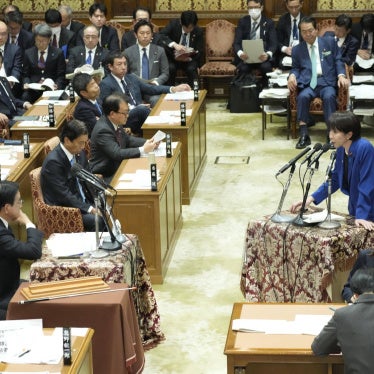Question: Thai media and much of the population has renewed hope for peace in the South since Thaksin’s ouster. How realistic is this hope?
Answer: People there—Muslim and Buddhist—have every right to be hopeful. But it remains unclear how soon and how serious the new government can make an overhaul of its policy to deal with the escalating insurgency. Equally important is whether or not those militants responsible for daily attacks will cease their attacks because of the political change in Bangkok. I am not very optimistic about both aspects.
Q: The military leadership in Bangkok has made several promises to undo Thaksin’s mistakes in the South, and it will talk with insurgent groups. Does this mean anything?
A: General Surayud Chulanont acknowledged the southern insurgency as a pressing national crisis in his inaugural speech. Surayud even said that problems in the South are rooted primarily in injustice in the society. Well, General Surayud has talked the talk. Now we need to see some concrete actions from the interim prime minister and the military authority that put him in power. When Thaksin was in office, his decisions and policies exacerbated the situation, giving insurgent groups the motivation to carry out attacks and recruit new members.
Thaksin often set unrealistic deadlines for security personnel to solve cases in the South, which pressured officials to resort to extrajudicial means and human rights violations. In efforts to identify and capture those responsible for many insurgent attacks, a number of Muslim people were arbitrarily arrested, disappeared or killed by the security forces. Promises of investigation and justice appear to be only rhetorical, aiming to defuse criticisms and political pressure. To date, there have still been no criminal prosecutions in the Krue Sae Mosque (April 28, 2004) and Tak Bai (October 25, 2004) incidents, in which nearly 200 Muslims were killed by security forces.
By addressing those cases seriously and following up by criminal investigation to bring those responsible for the abuses to justice, General Surayud can make a difference. This should happen in tandem with the establishment of administrative, security and judicial mechanisms to ensure that the conduct of government officials will be checked and balanced, and that they will be held accountable for any wrongdoings. Both measures will become an important step in creating confidence among the Muslim population that the government’s call for justice is real. With this much-needed trust and confidence earned, then the prospects of peace dialogues will be more promising than what we are seeing now.
Q: How have insurgent groups reacted to the Thai Army’s peace dialogue proposals?
A: Thai security personnel have been engaged in informal meetings and consultations with exiled leaders of PULO and BERSATU, two of the most prominent insurgent groups, including sessions called by former Malaysian prime minister Mahathir Mohamad, on the island of Langkawi. But apparently, those talks have not led to an improvement of the situation in the South.
The National Revolution Front-Coordinate (Barisan Revolusi Nasional-Coordinate, or BRN-C), particularly its youth wing, Permuda, and guerrilla units Runda Kumpularm Kecil (RKK), have reportedly said that they will never give up their armed struggle to carve out the independent territory of Pattani. In this connection, members of other groups that have communicated their willingness to settle for limited autonomy or special administrative arrangements under the Thai constitution have been seen as stepping outside the “true cause” and can be subject to reprisal from BRN-C.
It is disturbing to note that those groups and individuals responsible for insurgent violence seem to believe that all means—planting bombs in public places—are legitimate to liberate the South. Not only should insurgent groups in the South cease such attacks, but political and religious leaders in the South and elsewhere who may have expressed support for the insurgency should condemn the targeting of civilians and all acts that put civilians unnecessarily at risk. In short, I do not see any promising prospects for the end of violence from the insurgent side of the equation either.






